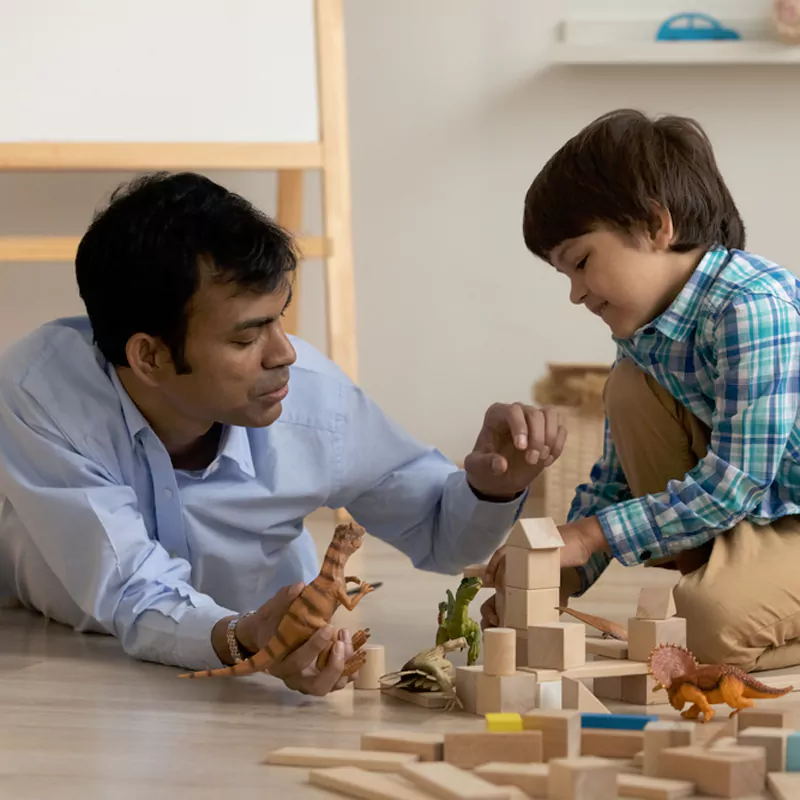Comparison Between Being “Present” Parents & “Absent” Parents
The difference between being “present” parents and “absent” parents is like having a child grow up in broad daylight and leaving a child to fend for herself in the dark and alone. The outcome of the latter course of action is often disastrous as it severely impacts a child’s development and well-being.
The Good: Being “present” parents

The need for both parents’ involvement in children’s care and control means that they are able to constantly provide positive input, guidance and support as children grow and learn. There are other innumerable benefits of being “present” parents as well:
1. They can provide a nurturing and supportive environment for their child. Children thrive when they feel loved and supported, and “present” parents can help create this type of environment by being attentive, responsive, and involved in their child’s life.
2. Children are able to model positive behaviours and values taking cues from parents who are present. Children learn by watching and imitating the adults around them, and a “present” parent can provide a positive role model by showing their child how she needs to behave, communicate, and make good choices.
3. “Present” parents stay connected with their children and be aware of what is going on in their lives. By being present in a child’s life, parents can stay up-to-date on their activities, moods, and development, and can better understand the needs and how to support and fulfil those needs.
The Bad: Being “absent” parents

Being absent parents means being less involved in a child’s life, either because of work, other commitments, or a lack of interest. There are several other potential downsides to being absent parents:
1. A child may feel neglected or unloved. Every child needs attention, affection, and reassurance from their parents. When they are absent, a child will have no one to interact with or turn to for help or advice. This will eventually lead to feelings of sadness, and insecurity and lead to growing up with low self-esteem.
2. A child will be without the support and guidance of her parents when she needs it the most. And when unable to navigate through the challenges of growing up, a child will be exposed to traumatic experiences which can have a lifelong impact on the child.
Needless to say, without the guidance of parents, it will be impossible for a child to face and overcome serious behavioural issues. Imagine this worst-case scenario of a child growing up and not being in a position to build meaningful relationships at all!
3. Children learn how to regulate their emotions through interactions with their parents. Without parents to guide them, a child is literally at sea, struggling with self-regulation and self-control problems. A child will also be struggling to learn how to go about developing these critical skills.
“Absent” parents will not be able to provide this type of guidance, leading to problems where behaviours such as rampant impulsiveness thrive, frequent outbursts of anger prevail, and a total lack of self-control leads to negative reactions to situations – for instance, throwing a tantrum in the middle of an aisle at a food court, a shopping mall, an amusement park…this will be just the beginning of such dramatic instances.
The Ugly: The impact of “absent” parents on mental health

Parental care in early childhood is one of the most important factors and helps foster the cognitive and non-cognitive abilities of children. Studies show that the absence of parents when their children are still very young negatively impacts their development in health, daily behaviours, and academic performance when they are at school.
The negative effects of being absent parents can go beyond just the feelings of neglect or a lack of guidance. Children with absent parents are more likely to experience mental health problems, such as depression, anxiety, or low self-esteem.
These problems, amongst others, can have long-term consequences and impact a child’s ability to form healthy relationships and succeed in social interactions at school and at work.
Finding the right balance
Being “present” parents or “absent” parents is not an either/or proposition. It’s important for parents to find the right balance that works for an individual family unit, and to be aware of the potential impact of their parenting style on their child’s well-being.
While parents communicate directly through verbal and body language cues, it’s emotions that guide how these exchanges are received and interpreted, especially by young children. Remember, parents and children ultimately engage with each other through the use of their emotional vocabulary.
This not only helps fulfil individual emotional needs but also empathises with those needs even if parents are unable to support them ‘in’ the moment. Please note that children need constructive role models to provide the reference points that help them to engage with others in true empathy.
This is why “absent” parents deeply wound the emotional well-being of a child consciously and subconsciously. Growing up with emotionally unavailable parents invariably leads to the inability of young children to be emotionally present and empathise when they are interacting with others. [Source]
So when you are “absent” parents, it’s important to make the most of the time you do have with your child and find new ways to stay connected and supportive even when you are unable to be physically present for her.
When you are “present” parents, it’s important to make sure you are providing a nurturing and supportive environment, while also giving your child the independence and autonomy she needs to grow and learn.
About My Gym & Abrakadoodle
My Gym aims to lay a firm foundation for personal, academic and future growth by involving your child in age-appropriate, structured and unstructured physical activities. Helping strengthen neural networks within the brain and developing a child’s thinking and problem-solving skills.
At Abrakadoodle, process art learning experiences inspire toddlers and young children to help articulate their thoughts and feelings. Children also discover visual art is the easiest way to relax and meditate. Doodling, scribbling, painting and drawing help children to think differently, be innovative, and explore new ways to grow their minds.
Frequently Asked Questions
What is the difference between “present” and “absent” parenting?
Present” parenting refers to a parenting style in which the parent is actively engaged with their child, actively involved in their child’s life, and makes a conscious effort to be available and supportive to their child. Parenting with presence allows parents to provide support, love, and guidance to children as they navigate through the stages of growth and development.
On the other hand, “absent” parenting refers to a parenting style in which the parent is emotionally and physically absent from the child’s life. This can occur for various reasons, such as work demands, lack of interest or engagement, or other personal issues. In absent parenting, the child may feel neglected and unsupported when they experience lack of attention from parents.
What are the negative effects of being an “absent” parent on a child’s development?
Being an “absent” parent can have a number of negative effects on a child’s development. Children who tend to be growing up with emotionally unavailable parents may experience the following:
– Emotional instability: Lack of emotional support from parents may cause trouble regulating their emotions and struggle with feelings of sadness, anger, and anxiety.
– Social and relationship difficulties: Lack of strong emotional bonds with parents may cause trouble forming relationships with others.
– Poor academic performance: Children who lack support and guidance from their parents may have trouble focusing in school and may struggle with their schoolwork.
– Behavioral problems: Children who lack a supportive and present parent may engage in problematic behaviors, such as substance abuse, criminal activity, and aggression.
How does parental care in early childhood impact a child’s cognitive and non-cognitive abilities?
Parental care in early childhood has a significant impact on a child’s cognitive and non-cognitive abilities. Research has shown that children who receive high-quality care and support in the early years are more likely to develop strong cognitive skills, including language development, memory, problem-solving, and reasoning abilities. These skills form the foundation for later academic success and lifelong learning.
By realizing the role of parents in a child’s life, parents tend to provide supportive and nurturing care in the early years, which can help their child develop a stronger sense of self-worth and better relationships, and may also lead to fewer behavioral and mental health problems in the future.
Are children with absent parents more likely to experience mental health problems?
It’s been discovered by studies that the lack of parental involvement in child’s life can have a profound impact on their mental well-being. Children who grow up without the comfort and support of a parent are more vulnerable to emotional and behavioral difficulties, such as anxiety, depression, and other behavioral problems. This can leave them feeling unsure of their self-worth and with difficulties in forming meaningful relationships. With the right support and nurturing care, however, these children can still thrive and overcome their challenges.



